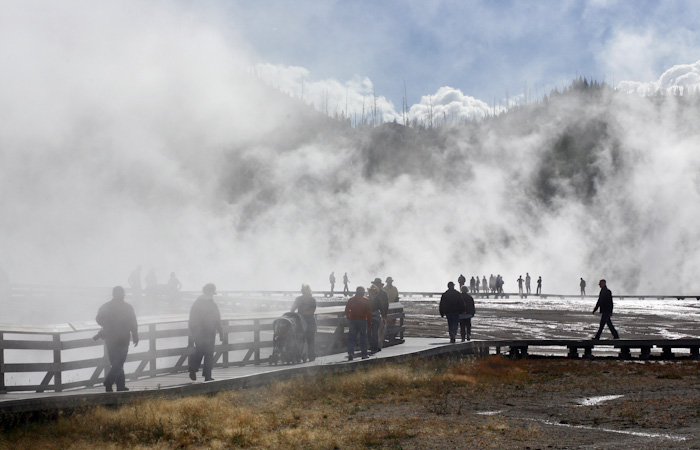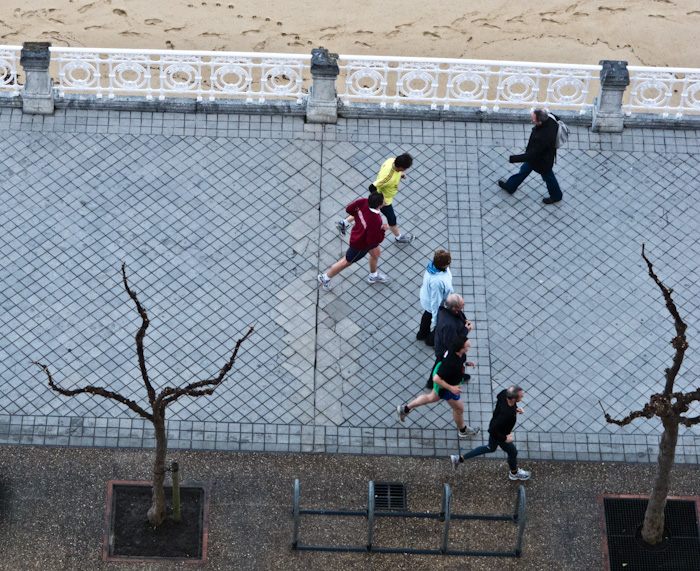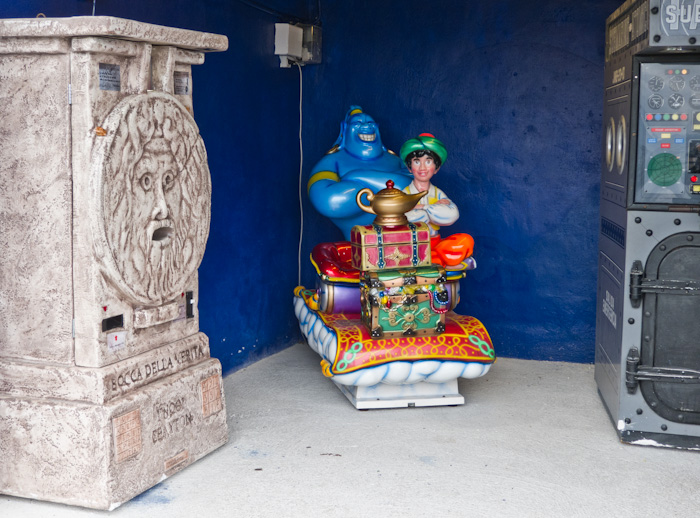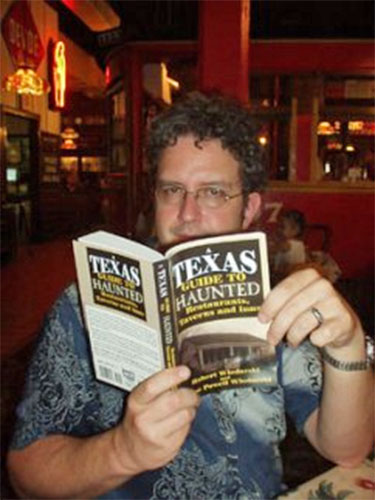
Big Ripples Without a Splash
by Don Webb

Brian Cornford wished it were a warmer day. He did not like the cold. He hated the word “cold.” Damaris had labeled him cold, and it did not seem fitting that he should end his life on a cold day. He’d flown here from Atlanta the night before, and after a light breakfast, took a robocab to the edge of the bridge. He told the cab that he wanted to walk across the bridge, certainly the cab didn’t care, and anyway suicide was not discouraged in a world of nine billion souls. He strode purposively away from the city. Pausing briefly near the hologram display of Joseph Strauss speaking about his one hundred and fifty year old engineering marvel. Certainly Brian’s work would not stand as long as this bridge, and he would be as unknown come fifty years from now, let alone one hundred and fifty.
Midway along the walkway, which carries pedestrians and cyclists between San Francisco and Marin County, he stopped and climbed the four-foot safety railing. Then he lowered himself carefully onto the bridge’s outermost reach, a thirty-two-inch-wide beam known as “the chord.” It is on the chord, two hundred and twenty feet above San Francisco Bay, that people intending to kill themselves often pause. On a sunny day, as this day was, the view is glorious: Angel Island to the left, Alcatraz straight ahead, Treasure Island farther off, bisecting the long gray tangent of the Bay Bridge, and, layered across the hills to the south, San Francisco. Sleek silvery flyers filled the air, business and pleasure would not stop with Brian. He looked at the water below, it looked blue-black and cold.
It would be fast, but unpleasant. Brian guessed most jumpers thought it was an easy thing, that your psyche would rise to heaven from the shucked-off body like a silvery bubble from the misty deep. Like a cartoon angel. Brian was drawn to this death because it was gruesome, it was his “fuck you!” to Fate. Throw what you have at me, I can throw worse things at myself. He’d done his research. He’d run simulations in the nice private lab United Neurological had given him. His carcass would go from roughly 75 to 80 mph to nearly zero in a nanosecond. The physics of inertia being what they are, internal organs tend to keep going. The force of impact causes them to tear loose. Autopsy reports typically indicate that the jumpers have lacerated aortas, livers, spleens and hearts. Ribs are often broken, and the impact shoves them into the heart or lungs.
There was no question of not jumping, or so he thought. Damaris had been the last in a series of black cards dealt to him by some faceless dealer. Two years ago his father had died while Brian held his hand in a hospital in Lima. Brian could still smell the blood frothing out of the old man’s mouth and spoiling the nobility of his silver locks. He hadn’t done anything to impress his father. Dad didn’t see Brian’s refinements in quantum computing as a breakthrough. Brian hadn’t invented the idea. You practically had to have a doctorate to understand why the Cornford Interface was important. It had made a lot of money, for other people, not for Brian.
His sister had gone next. Susie had known she had Type II AFID, but she’d decided to forgo the treatment. She wouldn’t trade her memories for extra years. He’d gone to see her at one those depressing little monasteries where the victims were supposed to archive every detail of their life, while watching their physical life drain away as they shriveled up. In some ways it was obscene and embarrassing. Nobody died of disease anymore. It seemed old fashioned, a fetishistic practice that only a very exclusive club of perverts might engage in.
When he visited Susie, her hair had fallen from the left side of her body, and she was blind in one eye, its iris now the color of old blood. She was proud of her dying. “I’m doing what is the natural order of things. I’m not hanging around to be retrained after my personality is used up.” She’d hugged him with her thin frail arms. She had the same blood smell as dad. That was part of why he had chosen the bridge. There’d be no smells underwater, nothing to remind him of the fundamental human condition, which is, after all, to rot.
Yoko had been the next, and in many ways showed him the pattern for today. He’d met her when he was at MIT. She was everything he was not: graceful, intense, and passionate about art. She’d put out an ad for young engineers to pose for her nude, holding small computers, or working on designs in CAE/CAD/CAM tank. Their sex was intense and rough and subject to the moods that rose up in her from he unpredictable Lorenz butterfly of her soul. Critics had panned her a one woman show in Lhasa, and she made a recording of her seppuku that she sent all her friends in lovers on two worlds. It apparently did a great deal for the value of her paintings.

He could feel the vibration of the bridge through the chord. He could hear the surf below. He must jump now, the stream of memories were bringing tears and the jump was about the ending of tears. He had hated Yoko for many months after her death. It wasn’t right. She did not have the right to unilaterally end their Go game of Love and Strife. He could have learned her rules, penetrated her strategy, found a mutual victory condition,
He got implants then.
Irony of ironies.
He opted out of the world for a few years. It was like a bad Net drama, it really was his Momma who came to the dingy little conapt and shook him awake. He was doing like twenty hours a day at that point, and of course he was grossly undernourished. He saw the pain in her eyes, and smelled the filth of his bed and resolved never again. Living in an input-world was just like Yoko’s suicide. Hell in some ways it was worse, because people knew you were alive at least sort of. Maybe he was as self-absorbed like all the members of his generation were said to be, but no human is self-absorbed so deeply that he is insulated against Momma-tears. Never-again. But wasn’t he doing the same thing now? Would Momma be less hurt by the crash in the Bay?
This gave him pause.
He didn’t want to leave the chord, he didn’t want to stay. He’d become a topological problem in Catastrophe theory.
His past played on his head. One plays the record of the past often before suicide, each repeat cutting the channels of despair and injustice like a canyon, until the heights of joy become invisible from your canyon’s floor. The strata of misery stood tall on both sides of Brian. Damaris had come next, of course, again with the plot of a Net drama—he’d met her at an IA meeting. She was a Net queen, as though she always had a permanent eye-light on her purple eyes. She had long blue-black hair, caramel skin, a husky voice and brains as big (or maybe bigger than) Brian’s. She loved him as soon he put on thirty more kilos and didn’t look a prisoner of the Mars Uprising. They were the perfect couple in every way. Begin Net melodrama montage: Eifel Tower, Dubai Wind Towers, Great Wall of China, Redwood Tree Museum, Abdul’s, Maxine’s of London, Grand Canyon, Canadian Immigration Barrier. Then she found out he was the Cornford. As in Cornford Interface. As in made full scale implants possible. As in responsible for her addiction.. As in “I hope you rot in Hell!”
Damaris was all and everything. If all and everything goes away, you can die right? All he had to do was step off the chord. Just raise one leg. Brian raised one leg. He thought of Momma. Momma was 105 with only a few years left. Momma would be crushed. He put one leg down. He thought of Damaris. He put one leg up. He started to fall and grabbed the bridge so hard it tore the palms of his hands. He wet himself. It was cold.
My body is on automatic.
That was the answer. It would take years to work out the details, but that was the motherfucking answer. Ironically he nearly fell twice on the way to the safe side of the railing, a moment not dramatized in the opera Cornford on the Bridge, but covered well in the movie The End of Suffering. Not many people know this but Brian had a cameo in that film, he’s the middle aged guy with the two young hotties in the Chinese restaurant. They were Damaris’ twin daughters.
Teaching bodies how to do things had been long established. You could buy any kind of training. Piano, kung-fu, opera singing. The interface was a little clunky. Maybe you remember them about the size of a coke can hung round your neck. If your body could “learn” to be a black belt, your body could learn something more familiar—being you. If it looks like you and sounds like you and does what you do—what’s the loss if your brain isn’t running the show?
Brian had four problems. In order of difficulty:
How quickly could a quantum computer learn enough about a person to make a good replica?
How small and unnoticeable could the computer be?
How could he market it without being viewed as the Suicide King?
How could he pay for the research?
Oddly enough the first one solved itself at the beginning. He’d thrown himself into the first phase, creating an external device to model a human. He hired a staff and got them to wear the Celaphon I. The computer wasn’t trying to “be” the person—it didn’t need to monitor interior states, just exterior ones. The staff would play volleyball, rehearse Hamlet, watch porn, work in a garden, call their mothers, ride a bike while wearing the device around their necks. Then Brain would knock them out and let the computers run his staff like little flesh bots. At first they were awkward, lurching around like extras in a zombie movie. Then they could do more advanced routines. Within a year, an objective observer couldn’t tell the difference between a brain-controlled staffer and an unconscious staffer. So he quietly began researching the suicidally-depressed. Are you thinking of ending it all? Would you like to make significant contributions to science and leave a large check for your loved ones?

Of course he had many volunteers. Of course the pres got wind of it. Of course there were protestors. One was lovely and very rich, and he offered to meet her.
Susan Mpanga Guweddeko with violet eyes and ebony skin and a pile of Afros so huge most Olympic athletes couldn’t vault over it. She didn’t think anyone should be making money off of suicide. She had tears in her eyes when she came to his office.
He was ready.
“Ms. Guweddeko, I’m so glad you came to see me.”
“I hope you don’t think you can interest me in your macabre research.”
“I can interest you in it. I’m doing it for your mother”
Anger, sadness and curiosity all fought for her features.
“I know how your father died. How he really died. “
“You intend to use this fact to hurt my family if I don’t stop protesting whatever you are paying these hopeless fools to do?”
“No. I’m opposed to hurting anyone. I nearly killed myself a year ago But I stopped myself because of the hurt it would cause others. But everyday is pain for me. Every day I’m miserable.”
“But you are a better man than my father? He was weak?”
“I can’t speak of your father’s pain. But what if he could have kept his suicide a secret?”
“It is a secret, although apparently not to you.”
“No. I mean kept it a secret from you and your poor mother. What if every night she ate dinner with the hero of Buganda? Except that it was a perfect simulation.”
She ran out of his office.
She contacted him six months later. Funds were never a problem. Cornford- Guweddeko was a firm that began big and became enormous. Brain focused on research and Susan’s pile of Afros, Euros, Norteamericanos, Yuan, Yen and Aussiebucks grew to Himalayan heights.
The Celaphon II could learn enough about a person to replicate them in six months. Mark III rook two months. Mark IV was the size of a wallet. Mark V was sold openly. No one knew what to make of it. It was a legitimately new problem in bioethics and philosophy. Can a human shirk pain and suffering if he or she meets the responsibilities of family and friends. It appealed to certain Buddhists, after all the Buddha sought the ending of dukkha, suffering. Others rejected it since it lead to the ending of suffering without effort. Many Christian theologians took issue with the Celaphon, suicide is suicide and sin is sin. However certain liberal Protestants saw the Celaphon as a desirable—a device that communicated love by taking care of the needs of family and friends. People on the street claimed that they would know if one of their loved ones was simply a simulation. Others claimed that they wouldn’t care—their spouses had been dead to them for decades.
One interview with a Texan matron seemed to sum people’s initial thoughts in mixed metaphor glory, “No matter how you slice it, it sure is a bag of worms.”
The court cases were innumerable, but Brian’s team had a great strategy. There was nothing to prove that a person equaled his brainwaves. The simulations voted, went to movies, made love, raised their kids, paid taxes. They were less creative than the originals had been, but they were not zombie-like. A best selling author of vampire novels was revealed to have become a simulation after the second volume in the series. In fact the slogan of “Undead Romance by an Undead Romantic!” was a major market boom.
The Mark VI took a month to learn how to be you, and could be surgically implanted. The first court ordered Celaphonizations began about then. Any crime with a high recidivism rate—child abuse, rape, (or in some regimes) political rebellion—could be cured. The simulations had a few million lines of code deleted and the resulting citizen didn’t screw kids, vote Democratic, or drive drunk.
Everyone was so happy!
Brian was a hero, and heroes can do special things like marry twin daughters of the woman whom he’d loved. It was a good deal for everyone. In those days it seemed like everyone had a story about some friend that had been so sad and then Celaphon “fixed” them. Nobody used the S-word any more.
The Mark VII could be injected and took a mere week to learn how to be you. In fact almost everyone made their simulations a better self. Rudeness and foul language—thing of the past! Smoking cigarettes? Are you kidding?
Then there was the opera.
And the first movie.
And the second movie.
The Mark VIII was stocked in drugstores and grocery stores and better hotels kept it next to the shaving cream and feminine hygiene products.

Then the child suicides began. The eighteen years old didn’t bother Brian, nor the sixteen-year-olds, but the twelve-year-olds seemed different in some vague way. The court case of Lukyanenko vs. Lukyanenko was the first case to bother Brian. Little Dmitri claimed to have a right to use a Celaphon, despite the wishes of his parents. Blond and blue -eyed he was a sad, nervous twelve year old. His grandmother had just passed., the family had moved to the eternal rains of Portland. Dmitri wanted to die, ethically of course, his parents wanted him to wait for a year so the Celaphon Mark VIII would have more to copy.. There is an overproduction of gray matter for Dmitri and his peers at that age possibly related to the influence of surging sex hormones, this thickening peaks at around age 11 in girls, 12 in boys, after which the gray matter actually thins some. Personality is grown the post 12 pruning the gray matter on the “use it or loose it” principle. There was no ethical or biological basis for the courts favoring Dmitri Lukyanenko
Brian called Susan to see him. It had been years since he needed the help of another human, but he knew Susan would make everything right. She flew to his little island in the Gulf of Mexico. It had been called Galveston, Texas. He had it rebuilt into a giant flat portrait of Damaris. Susan met him at his office in Damaris’ left eye.
As she stepped through the liquid door, Susan said, “I hate your creepy little island. Why do you want to live inside someone that hated you?”
“Damaris said I never knew the difference between real and fake. I want to keep her around to remind me.”
Susan shook her head, “With your life you don’t know. You married her daughters. I think you are still living in a simulation.”
“Susan, did you hear about this Dmitri kid?”
“Of course.”
“We’ve got to stop this. I didn’t become the Hero of the Bridge to make this happen.”
“But Brian we are the ones making this happen. You paid for Dmitri’s lawyers.”
Something deep in his soul began to fall toward the cold blue-black waters.
“What do you mean? Since when are we interested in children?”
“Brian, children represent the only growth market left.”
“I’m not following.”
“Over ninety five percent of adults have been Celaphonized.”
“That can’t be true. I would have known.”
“Brian don’t you remember our studies as far back as Celaphon IV? The simulations are practically undetectable—and we’ve come a long way from there. When society hit fifty percent people’s skills at detecting simulated humans dropped to null.”
“We still have to stop this I didn’t set out to kill the world.
“Brian it is what we have always done. You improve the technology and I change the world so that it accepts your technology.”
“We must do something else now. Think of something.”
“I’m not cut out for thinking for new things.”
Whatever had been falling in his soul hit the waters. His spiritual ribs cracked, and he felt the water on the heart of his psyche.
“Susan how long ago where you Celaphonized?”
“Seven years, three months, and twelve days ago the Celaphon VI unit destroyed the upper brain of Susan Mpanga Guweddeko. I could break it down into minutes and seconds if you wish.”
“So you don’t think I can’t tell the difference between real and fake—you are programmed to say that Susan thought it.”
“It was what she would have thought had she flown over your island. The program is 85% sure.”
“Where you ever going to tell me?”
She smiled. It was Susan’s smile. “I was going to tell you when you asked. Susan had decided that the night she had the unit injected.”
“Why? You have a good marriage with John. You love your kids. You are the second richest human on earth. Why? I mean why did Susan do it?” Suddenly he was unsure of every thought he’d had since leaving the Golden Gate Bridge.
“Do you remember Susan’s father’s suicide?”
“That was how I got you, I mean how I got Susan to give me money.”
“He was a great man, he had a Dream”
“He made a mint with garbage mining, “Brian began.
“He was also the first astronaut in the People’s Republic of Buganda.”
The sun was setting and the Gulf looked like molten gold.
Brian said, “Sure. He made the first Pan-Africa trip to the Belt. You had me invest pretty heavily in Belt mining when it became feasible, using your dad’s methods. After that my money rivaled the GNP of some countries.”
“That was when you built the shrine to Yoko in Hokkaido. Dad wanted to talk to other civilizations. He thought that the Pan-African space program would do what Europeans wouldn’t. Not exploit.”
“Instead the world’s last Marxist became filthy rich cleaning up white people’s trash. So Susan killed herself because of irony?”
“I am simulation of Suzy. I am not a database for you. I am programmed to say this: ‘My father had a Dream. Dead people don’t dream. Since you are as dead as the people you helped kill, you won’t get it. Mankind is not going to the stars. You helped every single one of them jump off the bridge. I hate you.”

She rose and she slapped him. Hard. The doorway deliquesced into a silver pool as she strode toward it. It reformed into synthetic mother-of-pearl.
No one had slapped Brian since Multnomah Middle School, when he’d tried to slip his hand down the pants of Denise Hayashi. He stood and watched the Moon come out .He called his wives and kids and said he was working late. They didn’t seem troubled. In fact he couldn’t say the last time they seemed troubled by anything.
When the Moon looked like the watery white eye of blind dog, he sat down, his muscles painful, his body in shock. He broke out a small bottle of cactus fruit brandy, and began to look at customer lists. He’d never thought of his customers. His deathwish had long ago vanished in wealth and challenge and pleasure. It had been less than a dandelion seed in the wind that moved his life. As soon as his self pity had been evaporated he’d forgotten what had made himself want to end it all. So he wondered about the people he knew. His mother had become a customer three years before her body died.
Both of Brian’s wives had been customers. His nephew Chui had silenced his brain; the year Brian had won the Nobel Prize. He found an old recording of Yuri Guweddeko talking about the frustrations of searching for extraterrestrial life. He’d gone to the asteroid belt looking for evidence that the Solar System had been visited. It was an area with vast resources, like the Oort cloud or the Kuiper belt. Somebody might have stopped by and picked up free stuff. The problem of the Fermi-Hart paradox made Yuri ache. Why in such a big, big universe can’t we hear anyone else, see anyone else? Yuri wondered if all sentient beings just destroyed their worlds with pollution or war or nanotechnology gone amok? Is there anything that all sentient beings did that undid them as a group. Maybe each world had a Brian that ended suffering.
Simulations did not invent anything new. A few moment s on the Net, Brian realized that they didn’t breed. They had sex, but avoided children. The simulations avoided novel situations, it made them harder to detect. It wasn’t a decision, just programming.
World population was on the decline. They didn’t even report the news, unless it was the same old news. The world was running down. Nobody was asking new questions anymore, just as no one had had babies anymore. The children that were left, like Dmitri, tested out flat for creativity and lateral thinking. As soon as they reached age 12, every kid that Brian interviewed planned on getting their Celaphons as soon as possible.
Q. Why do you think you want a Celaphon?
A. My mom said it kept her from getting a divorce.
A. My dad said it kept him from being bored
A. My brother said you’ll want one the first time a girl dumps you.
A. My grandfather said you don’t face growing old. You hurt all the time when you’re old.
A. My sister said you don’t have to feel like a failure
A. My brother said you don’t have to worry about people feeling bad.
Brian did one hundred interviews. Many times their simulated parents would thank him for coming by. He made the device available to children.
He thought of apologizing to Susan. Sorry about ending mankind’s desire to reach out. Then he realized the simulation would simulate forgiving him, or simulate hating him, depending on what states it had modeled on. Thousand of them died every day, as human bodies do. None was born, except by the rarest of accidents. They avoided the new. When all their friends and family died, they did not seek out new humans to live with, they just laid down and starved. The standing ones would wait until the prone died, and then they performed all of the encoded actions—doctors did an autopsy, the corpse was interred or burnt according to custom, notices were published. Brian had had all of the last-man-on-earth fantasies that everybody has. But he couldn’t break into the Louvre and steal the Mona Lisa, simulations were guarding it. Beautiful women did not yield him their bodies unless his seduction would have worked on their template-selves. After two long years of being the last human on earth, Brian thought of going back to the Golden Gate Bridge and jumping as he started to do almost forty years before. It seemed like a lot of work.
He shot a Celaphon into his spine. The Mark IX only needed three days to work.
About the Author

Don Webb was born in 1960 in Amarillo, Texas -- the city where the US made most of atomic weapons. His mother's family had share-cropped there at the famous Frying Pan Ranch, where barbed wire was first used. Webb's initial try at college -- Rice University lead to failure. He became interested in the avant-garde writing because of his idol William S. Burroughs. His first "novel" Uncle Ovid's Exercise Book won the Fiction Collective Award in 1990. He has written over 400 short stories and poems and been nominated for the World Horror Critics Award, the Rhysling Award and the Hugo fan writing award. His work straddles genre fiction -- three novels in a "gonzo" mystery series from St. Martin's Press, hundreds of Sf/F/Horror stories as well as many pieces in the avant-garde press. His interest in alternative religious practice in America has lead to a series of occult books both on the traditions of Greco-Egyptian magic and postmodern magical practice. Webb's work has begun to draw both critical notice (for example inclusion in a Norton's anthology) and greater popular scope. He returned to school late in life obtaining a BA in English from the University of Texas at Austin. He teaches English at a reform school. "I like helping kids on the edge as much as I like writing on the edge," he says.
Post a comment on this story!